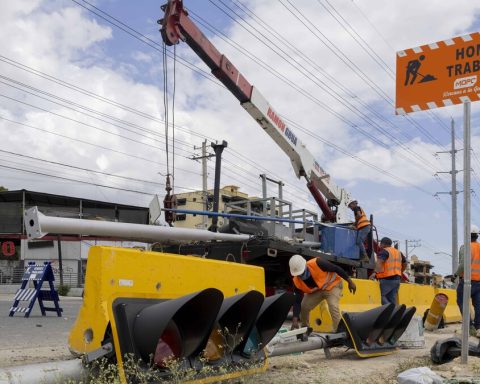The collapse of the FTX exchange platform and its contagion effect continue to affect the world of cryptocurrencies, and Bitcoin fell again in the last 24 hours below US$ 17,000 per unit.
The most used cryptocurrency in the world was trading this Saturday morning in the range of US$ 16,700, with a fall of 1.5%; while the losses were more pronounced in other alternative currencies such as Ethereum, Dodgecoin, Polygon and Litecoin, which presented losses of between 2% and 7%, according to the Coinmarketcap portal.
Since the beginning of the year, Bitcoin accumulates a decrease of almost 65%.
Among the reasons is the very context of the real economywith cryptocurrencies being dragged -along with stock market shares- by the eCentral bank monetary policy tightening like the Federal Reserve, making safer assets like Treasuries more attractive.
But the uncertainty of the sustainability of the sector, after the fall of FTX last month, caused a strong mistrust.
The analyst Noelle Acheson pointed out, in dialogue with the Bloomberg agency, that still “there may be other ugly news linked to the contagion” in the sector, but that “most investors who were going to sell their holdings have already done so.”
One of the biggest targets is the main exchange platform Binance, a rival at the time of FTX.
In the last week, the firm suffered a run on more than $6 billion in cryptocurrency deposits, a situation that escalated after Mazars Group, an accounting firm, halted its audit work on Binance and other cryptocurrency firms.
Companies seek, by hiring these firms, to demonstrate to their clients that they have enough reserves to cover any run and that it is possible to trust them.
This is reinforced by the fact that, contrary to traditional finance, in the world of cryptocurrencies there is no entity capable of stopping the contagion and exerting some kind of bailout.
However, for Michael Burry, an investor known for predicting the 2008 subprime mortgage crisis, these audits “have no meaning”, and he recalled on his Twitter account that, in 2005, before the crisis began, companies Accountants could not yet recognize the risks behind some instruments.
Binance repeatedly argued that, unlike FTX, it does not misuse user deposits, that it has “one-to-one” backups of user deposits and an emergency fund of US$1 billion; and that it has already survived several “cryptocurrency winters”, including an 80% drop in Bitcoin between December 2017 and the end of 2018.
However, the withdrawal of Mazars as an auditor leaves Binance without any backing for its claims, and it will now have to look for another firm, in a context where accounting firms avoid tying up with crypto companies.
“I don’t think Binance is trying to cause trouble, but the company is now a risk to all of us. Any time there is a player controlling a substantial volume, there are a lot of systemic risks,” said Mark Lurie, co-founder of Shipyard Software, a developer of decentralized exchange platforms.
It is that Binance, after the fall of FTX, increased its market share to 52.9%, the highest in its history, according to data from CrpyptoCompare, and an eventual fall could be “catastrophic for the cryptocurrency industry and for all the users who use it”, as evaluated this week by the US Senator for the State of Tennessee, Bill Hagerty.
The company also faces another front when being investigated by the Department of Justice and the US Treasury (IRS) for alleged money laundering and tax evasion.


















